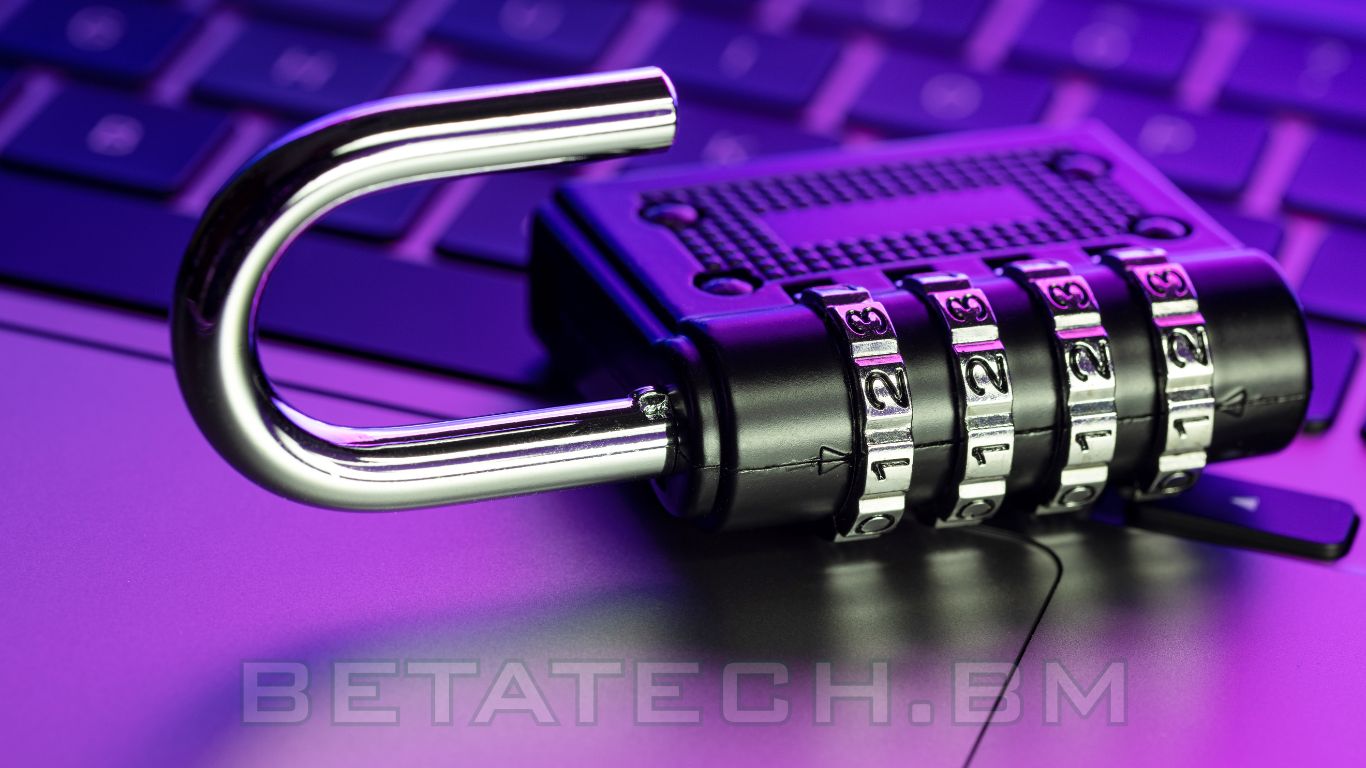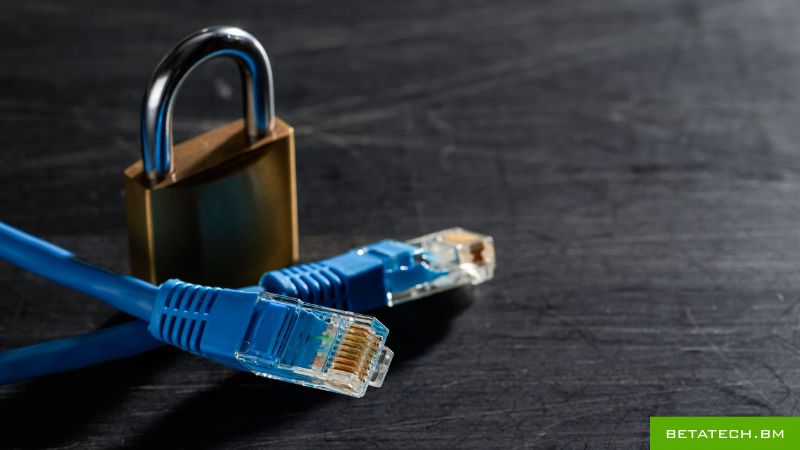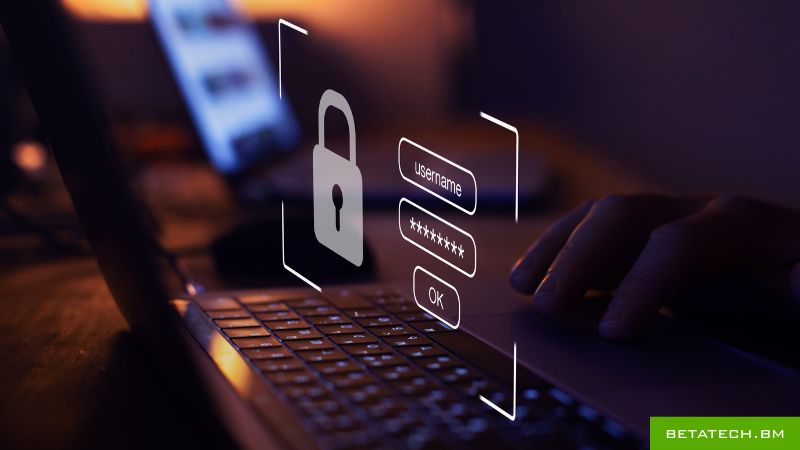Keeping your business safe from online threats is a big deal in Bermuda. With so many businesses relying on digital tools, understanding network security in Bermuda has become super important. This guide breaks down some of the top ways companies are protecting themselves, from watching network traffic to having plans for when things go wrong. It's all about staying one step ahead in the digital world.
Key Takeaways
- Bermuda has laws in place to deal with cybercrimes and protect personal data.
- A dedicated team, the Bermuda CERT, helps manage cyber incidents.
- The local market offers various cybersecurity services, and it's growing.
- The government is actively working on improving the island's cyber defenses and raising public awareness.
- Protecting critical services and ensuring data backup are top priorities for businesses.
Network Monitoring and Management
Keeping an eye on your network is pretty important, right? It's like having a security guard for your digital pathways. Without good network monitoring and management, you're basically flying blind. This means you won't know if something's wrong until it's already a big problem. Think of it as checking the oil in your car regularly; you do it to prevent a breakdown.

When we talk about monitoring, we're looking at a few key things:
- Performance: Is the network running as fast as it should be? Are there bottlenecks slowing things down?
- Availability: Is everything online and accessible when it needs to be? Downtime costs money and frustration.
- Security: Are there any unusual activities that might signal a threat? This is where threat detection comes in.
Managed IT services often handle this for businesses in Bermuda. They use specialized tools to watch over your network 24/7. This proactive approach helps catch issues early, often before you even notice them. It's about keeping things running smoothly and securely, so you can focus on what you do best.
Effective network management isn't just about fixing things when they break. It's about understanding how your network behaves, anticipating potential problems, and putting measures in place to prevent them. This continuous oversight is what keeps your operations humming along without unexpected interruptions.
Cybersecurity Solutions
When we talk about cybersecurity solutions in Bermuda, it's not just about having a firewall anymore. The digital world is constantly shifting, and so are the threats. Businesses here need a layered approach to keep their digital assets safe. This means looking at everything from protecting your network perimeter to securing the data itself.
A strong cybersecurity strategy is built on several key pillars. These aren't just buzzwords; they represent practical steps businesses can take. Think about endpoint protection for all your devices, secure email gateways to stop phishing attempts, and regular security awareness training for your staff. After all, human error is often the weakest link.
Here are some common areas businesses focus on:
- Threat Detection and Prevention: This involves using tools to spot suspicious activity before it causes damage. It's like having a security guard who's always watching.
- Data Encryption: Making sure your sensitive information is unreadable to unauthorized individuals, whether it's stored or being sent.
- Identity and Access Management: Controlling who can access what within your systems. This is super important for preventing insider threats or unauthorized access.
- Incident Response Planning: Having a clear plan for what to do if a security breach does happen. Speed and clarity are key here to minimize damage.
| Security Solution | Purpose | Key Benefit |
|---|---|---|
| Next-Gen Firewall | Advanced threat filtering | Blocks sophisticated attacks |
| Intrusion Detection | Monitor for suspicious activity | Early threat warnings |
| Security Awareness Training | Educate staff on threats | Reduces human error |
| Email Security Gateway | Filter malicious emails | Prevents phishing attacks |
The landscape of cyber threats is always evolving. What worked last year might not be enough today. Staying ahead means continuously evaluating your defenses and adapting to new risks. It's an ongoing process, not a one-time fix.
Many companies are finding that working with specialized IT providers can make a big difference. These providers often have the latest tools and the know-how to implement and manage complex security measures. For instance, companies like Beta Technologies are well-equipped to help businesses in Bermuda navigate these challenges. They can help assess your current security posture and recommend solutions tailored to your specific needs. It's about building resilience against the digital threats that are out there.
Cloud Services and Management
Moving your business operations to the cloud isn't just a trend anymore; it's a smart move for many companies in Bermuda. Think about it – instead of buying and maintaining all your own servers and software, you can rent what you need from big providers. This can save a lot of money and hassle.
Managed IT services providers in Bermuda can help you figure out the best cloud setup for your business. They handle everything from moving your stuff to the cloud, designing how it all works together, and then keeping an eye on it to make sure it runs smoothly. Whether you're looking at public clouds, private ones, or a mix of both (that's hybrid), they can build a system that grows with you and doesn't break the bank.
Here's a quick look at what cloud management services typically cover:
- Migration Assistance: Helping you move your existing applications and data to the cloud without losing anything.
- Architecture Design: Planning the best way to set up your cloud environment so it's efficient and secure.
- Ongoing Management: Keeping your cloud systems running, updated, and protected.
- Cost Optimization: Finding ways to use the cloud without spending more than you need to.
The flexibility of cloud services means you can scale up or down easily as your business needs change. It's like having an IT department that can instantly adjust its size without you having to hire or fire anyone. Plus, cloud providers often have top-notch security, which can be better than what a small or medium-sized business could manage on its own.

Data Backup and Disaster Recovery
When it comes to running a business in Bermuda, losing your data can be a real headache. Think about all the important files, customer records, and financial information you have. If something unexpected happens – like a bad storm, a hardware failure, or even a cyberattack – that data could just vanish. That's where having a solid plan for data backup and disaster recovery comes in.
Having a good backup system means you're not just copying files; you're creating a safety net for your entire operation. It's about making sure you can get back up and running quickly if the worst happens. This usually involves a few key steps:
- Regular Backups: Setting up automated backups that happen frequently, ideally daily or even more often for critical data. This ensures you always have a recent copy.
- Offsite Storage: Storing copies of your data in a separate physical location, or in the cloud. This protects your backups from local disasters like fires or floods.
- Testing and Recovery Plans: It's not enough to just back up data. You need to regularly test your backups to make sure they work and have a clear plan for how to restore everything quickly when needed.
It's not just about recovering files, either. A good disaster recovery plan looks at your whole IT system. It figures out what needs to be back online first, how long you can afford to be without certain services, and who is responsible for what during an emergency. This kind of preparation can make the difference between a minor hiccup and a business-ending event.
Planning for the unexpected isn't just good practice; it's a necessity for business survival. A well-thought-out disaster recovery strategy minimizes downtime and protects your company's future.
Help Desk and End-User Support
When your team runs into a tech snag, having a reliable help desk is super important. It's not just about fixing things when they break, but also about making sure everyone can actually use the tools they need to do their jobs. Think of it as the first line of defense when someone's computer is acting up, or they can't figure out how to use a new piece of software. A good help desk keeps your business moving forward without getting bogged down by IT headaches.
These support teams do more than just reset passwords, though that's a big part of it. They handle everything from setting up new equipment to troubleshooting network issues that are making things slow. It's about providing that immediate assistance so your employees aren't left staring at a blank screen.
Here's a quick look at what you can expect:
- Troubleshooting: Diagnosing and fixing hardware, software, and network problems.
- User Account Management: Handling new accounts, password resets, and access permissions.
- Software & Hardware Support: Guidance on using applications and resolving device issues.
- System Setup: Assisting with the initial setup of computers and other tech.
Having a responsive help desk means your employees can get back to their actual work faster. It reduces frustration and keeps productivity up. It's a key part of making sure your technology works for you, not against you.

Firewall Management
Firewalls are like the bouncers at the club for your network. They stand at the entrance, checking everyone and everything that tries to get in or out. Proper firewall management is absolutely key to keeping unwanted visitors off your digital property. It's not just about setting one up and forgetting about it, though. Think of it more like constantly updating the guest list and security protocols.
Here's a quick rundown of what goes into keeping your firewall in good shape:
- Regular Updates: Software needs patches, and firewalls are no different. Keeping the firmware and rulesets current stops known vulnerabilities from being exploited.
- Rule Review: Over time, rules can become outdated or too permissive. Periodically checking and refining these rules stops unnecessary traffic and tightens security.
- Log Monitoring: Firewalls generate a lot of data about who's trying to get in and what they're doing. Watching these logs can help spot suspicious activity early.
- Performance Tuning: A busy firewall can slow things down. Making sure it's configured for optimal performance means your network stays fast without sacrificing safety.
It's a bit like managing traffic flow. You want to let the good traffic through quickly while stopping anything that looks suspicious or dangerous. For businesses in Bermuda, especially with the growing reliance on digital services, this is a non-negotiable part of network security.
Managing firewalls effectively means understanding the traffic patterns specific to your organization. It's about creating a secure perimeter that adapts to evolving threats and business needs, rather than a static barrier.
Intrusion Detection
Keeping an eye on your network for any unwelcome visitors is what intrusion detection is all about. Think of it like having a security guard for your digital doors and windows. These systems are designed to spot suspicious activity that might mean someone's trying to get in where they shouldn't be. It's a critical layer of defense in today's connected world.
Intrusion detection systems (IDS) work by monitoring network traffic for known malicious patterns or deviations from normal behavior. When something looks off, it flags it. There are a couple of main types:
- Network Intrusion Detection Systems (NIDS): These watch traffic across the entire network. They're good at spotting broad attacks.
- Host Intrusion Detection Systems (HIDS): These focus on individual computers or servers, looking for signs of compromise on that specific machine.
Setting up and managing these systems can be a bit involved. You need to make sure they're configured correctly to avoid too many false alarms (when it flags something that isn't actually a threat) or, worse, missing a real intrusion. Regular updates to their threat signatures are also a must, because the bad guys are always coming up with new tricks. It's a good idea to have a plan for what happens when an alert is triggered, so your team knows exactly what steps to take.
The goal isn't just to catch intruders after they've caused damage, but to detect their presence as early as possible. This early warning allows for a quicker response, minimizing potential harm and keeping your operations running smoothly. It's about being proactive rather than just reactive.
Many businesses in Bermuda are looking at managed services for this. It means hiring a company that specializes in monitoring your network 24/7. They have the tools and the people to watch for threats, so you don't have to.
Vulnerability Assessments
Think of vulnerability assessments as a regular check-up for your digital systems. It's about finding those weak spots before the bad guys do. We're not just talking about big companies here; even small businesses can have security holes that could lead to trouble.
These assessments look for known weaknesses in your software, hardware, and even how your staff handles information. It's a proactive step to identify potential entry points for attackers. The goal is to get a clear picture of where you stand security-wise.
Here's a general idea of what goes into it:
- Scanning Networks: Using tools to automatically check devices and systems for open ports or outdated software.
- Reviewing Configurations: Looking at how your firewalls, servers, and other equipment are set up to make sure they're secure.
- Checking for Patches: Making sure all your software is up-to-date with the latest security fixes.
- Physical Security Checks: Sometimes, this even includes looking at who has physical access to your servers.
The key is to find and fix these issues before they become a problem. It's not a one-time thing, either. The threat landscape changes constantly, so these assessments need to happen regularly.
Regularly scheduled vulnerability assessments are a cornerstone of a strong security posture. They help organizations understand their risk exposure and prioritize remediation efforts, ultimately reducing the likelihood of a successful cyberattack.

Threat Mitigation
When we talk about threat mitigation, we're really looking at how to stop bad things from happening to your computer systems before they even get a chance to cause trouble. It's like putting up a strong fence around your property instead of just waiting for a burglar to show up. This involves a bunch of different strategies, all working together to keep your digital world safe.
One of the main ideas is to be proactive. Instead of just reacting when something goes wrong, you're actively looking for weaknesses and fixing them. This could mean patching up software holes, making sure your passwords are tough, or training your staff to spot suspicious emails. The goal is to make it as difficult as possible for attackers to get in.
Here are some common ways businesses tackle threats:
- Regular Security Audits: This is like a doctor giving you a check-up. Experts look over your systems to find any vulnerabilities or weak spots that someone could exploit.
- Endpoint Protection: This covers all the devices connected to your network – computers, phones, tablets. It's about making sure each one is secure.
- Security Awareness Training: Your employees are often the first line of defense. Teaching them about phishing scams, safe browsing habits, and password security is super important.
- Incident Response Planning: Even with the best defenses, sometimes things happen. Having a plan for what to do when a security incident occurs can make a big difference in how quickly you recover.
It's not just about buying the latest security software. Real threat mitigation is a continuous process that involves people, processes, and technology working in harmony. It requires a commitment to staying informed about new threats and adapting your defenses accordingly.
Bermuda Computer Emergency Response Team (CERT)
When cyber incidents strike, Bermuda has a dedicated team ready to help: the Bermuda Computer Emergency Response Team, or CERT. Think of them as the island's first responders for digital emergencies. They're there to assist both government agencies and private businesses when things go wrong online, like after a data breach or a ransomware attack.
Their main job is to coordinate the response, offering technical advice and guidance to help organisations get back on their feet. They work to limit the damage and figure out what happened. It's a pretty important role, especially for a place like Bermuda that relies so heavily on its digital infrastructure and international connections.
Here's a quick look at what they do:
- Incident Coordination: They help manage the chaos when a cyber-attack occurs.
- Technical Assistance: Providing expert advice to affected parties.
- Information Sharing: Working with others to understand threats better.
- Mitigation Strategies: Helping to reduce the impact of cyber incidents.
The Bermuda CERT plays a vital role in strengthening the island's overall cyber resilience. They are a key part of Bermuda's strategy to stay safe in an increasingly complex digital world.
Dealing with a cyber incident can be overwhelming. Having a team like the CERT available provides a crucial layer of support and expertise, helping to navigate complex technical challenges and restore operations more quickly.
NIST Cybersecurity Framework
The NIST Cybersecurity Framework is a set of standards and best practices designed to help organizations manage and reduce their cybersecurity risks. It's not a one-size-fits-all solution, but rather a flexible guide that can be adapted to fit different types of organizations, regardless of their size or industry. Think of it as a roadmap for improving your security posture.
The framework is built around five core functions:
- Identify: Understanding your assets, data, and potential risks.
- Protect: Implementing safeguards to keep your systems and data secure.
- Detect: Putting measures in place to find cybersecurity events when they happen.
- Respond: Taking action when a security incident occurs.
- Recover: Restoring capabilities and services after an incident.
Bermuda has been looking at this framework as a way to get a better handle on cybersecurity across government departments. It helps them see where they're strong and where they need to beef up their defenses. By using it, they can make sure their security efforts actually match what their business needs, instead of just doing security for security's sake.
Implementing a framework like NIST's helps create a common language and a structured approach to cybersecurity. This makes it easier for different teams and even different organizations to work together and understand each other's security needs and challenges. It's about building a more resilient digital environment for everyone.
Personal Information Protection Act 2016
Bermuda's Personal Information Protection Act 2016, often called PIPA, is a pretty big deal when it comes to handling personal data on the island. Think of it as the rulebook for how businesses and organizations should collect, use, and store information about individuals. The main goal is to give people more control over their own data and make sure it's treated responsibly.
This law sets out some key principles that organizations must follow. For instance, they generally need to get consent before collecting personal information, and they should only collect what's actually needed for a specific purpose. Plus, they have to keep that data safe and not hold onto it longer than necessary. It's all about transparency and accountability.
Here are some of the core ideas PIPA emphasizes:
- Purpose Limitation: You can only collect personal information for clearly stated, legitimate purposes.
- Data Minimization: Collect only the personal information that is absolutely necessary.
- Accuracy: Take reasonable steps to ensure the personal information collected is accurate and up-to-date.
- Security Safeguards: Implement appropriate security measures to protect personal information from unauthorized access, loss, or disclosure.
- Individual Rights: Individuals have rights regarding their data, such as the right to access and correct their information.
If an organization doesn't play by these rules, PIPA has some teeth. There can be penalties, including fines, and in serious cases, even potential jail time for individuals responsible. This really pushes businesses to take data protection seriously.
The Act requires organizations to be proactive about security. It's not enough to just react to a breach; you need to have systems and procedures in place to prevent one from happening in the first place. This includes things like regular security assessments and staff training.
Wrapping It Up
So, we've looked at a bunch of ways businesses in Bermuda can keep their networks safe. It's clear that staying secure isn't just about having the right tech; it's also about having a plan and making sure everyone knows what to do. From firewalls to training your staff, there are many steps to take. The good news is, there are local and international options available to help. Keeping your digital doors locked tight is just part of doing business these days, and it's definitely worth the effort to protect what you've built.
Frequently Asked Questions
What are the main types of network security solutions available in Bermuda?
In Bermuda, you can find many ways to keep your computer networks safe. These include tools that watch your network all the time, systems that block bad guys from getting in (like firewalls), and ways to find and fix weak spots before hackers can use them. There are also services that help you recover if something bad happens, like losing data.
Why is cybersecurity important for businesses in Bermuda?
Cybersecurity is super important because bad people online, called hackers, are always trying to steal information or cause trouble for businesses. Protecting your computers and data helps keep your customers' information safe, stops your business from being shut down by an attack, and makes sure people trust you.
What is the Bermuda Computer Emergency Response Team (CERT)?
The Bermuda CERT is like a special team that helps when cyber-attacks happen. They help businesses and the government figure out what went wrong, fix the problem, and stop it from happening again. They are there to help Bermuda stay safe online.
Are there specific laws in Bermuda about cybercrime and data protection?
Yes, Bermuda has laws to deal with cybercrime, which means crimes done using computers. They also have laws, like the Personal Information Protection Act, to protect people's private information. These laws help make sure companies handle your data carefully and punish people who break the rules.
What is the NIST Cybersecurity Framework and why is it used in Bermuda?
The NIST Cybersecurity Framework is like a guide that helps organizations, including the government in Bermuda, make their computer systems more secure. It helps them understand their risks and create a plan to protect themselves better. It's a well-respected way to improve security.
How can businesses in Bermuda get help with their IT and security needs?
Many businesses in Bermuda use Managed IT Services. These are companies that handle your IT needs, like keeping your network running smoothly, protecting you from cyber threats, and helping with cloud services. It's like having an expert IT team without having to hire them all yourself.











